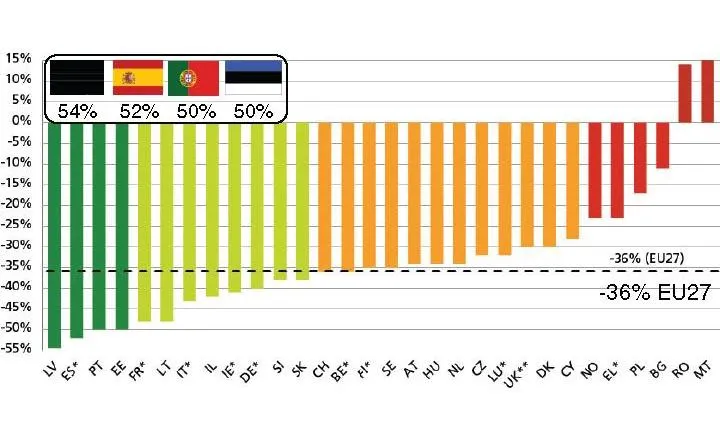A major campaign is commencing in the UK with the laudable aim of reducing road fatality rates.
February 29, 2012
Read time: 3 mins
A major campaign is commencing in the UK with the laudable aim of reducing road fatality rates. The move forms part of the 3447 UN 3439 Decade of Action for Road Safety. In the UK this is being marked by a joint campaign with participants including vehicle manufacturers, the insurance, road safety and public health sectors. The campaign is being spearheaded in the UK by Philip Hammond, secretary of state for transport and Lord Robertson, chairman of the Commission for Global Road Safety. This initiative unites the 3440 AA, 3441 RoadSafe, 3443 RAC Foundation, Government agencies, Police bodies and the 3445 British Medical Association, among the many participating businesses and organisations brought together for an event led by 3446 PACTS (the Parliamentary Advisory Council for Transport Safety). Each of these bodies is making a public commitment to make Britain's roads safe over the next decade. The UN's global initiative is aimed at the killer that claims a life, or causes lifelong injuries, every six seconds in the world.
The event picks up the five key themes identified by the UN as critical in tackling road deaths: road safety management; safer roads and mobility; safer vehicles; safer road users; post-crash response. The RAC Foundation will outline a new report that demonstrates how, in the UK, knife and gun crime among youths makes headlines. Yet between the ages of 15 to 24 years, young people are 17 times more likely to die in a road traffic collision than from violent assault. They are also 4 times more likely to die from a road traffic accident than from drug, alcohol or other substance poisoning. For the 10-14 age group 12% of all deaths are attributable to road traffic accidents. For 15-19 year olds the figure is 25% and for 20-24 year olds the figure is 18%.
Developing this theme, the Institute of Road Safety Officers will point out that the younger a person starts unrestricted solo driving, the more likely he or she is to have a fatal accident, particularly below the age of 18. It proposes an appropriate minimum age for unrestricted solo driving, plus possible graduated licensing for new drivers; curfews; and passenger restrictions.
The3375 Road Safety Foundation will call for an upgrading of the UK network to minimum 3-star by 2020 which would give benefits worth €39.9 billion (£35 billion), achievable during maintenance for less than 10% of current road spend. It will preview its forthcoming report showing just how achievable, high return and practical this is if there is focus by authority leaderships on the costs and benefits.
2394 Volvo will show how new technology is set to further reduce crashes in the future. Robert Gifford, executive director of PACTS, which is leading the UN initiative in the UK says: "Nearly 640,000 children were born in 2004 and are turning 7 this year. If they come to learn to drive in 10 years' time, we all commit that they will be driving on roads where all preventable deaths and injuries have become a thing of the past. This will be our legacy for young people by 2020. "We anticipate the Secretary of State will make use of this important day to announce the government's Strategic Framework for Road Safety. Its leadership is absolutely vital if we are to achieve our united aims."
The event picks up the five key themes identified by the UN as critical in tackling road deaths: road safety management; safer roads and mobility; safer vehicles; safer road users; post-crash response. The RAC Foundation will outline a new report that demonstrates how, in the UK, knife and gun crime among youths makes headlines. Yet between the ages of 15 to 24 years, young people are 17 times more likely to die in a road traffic collision than from violent assault. They are also 4 times more likely to die from a road traffic accident than from drug, alcohol or other substance poisoning. For the 10-14 age group 12% of all deaths are attributable to road traffic accidents. For 15-19 year olds the figure is 25% and for 20-24 year olds the figure is 18%.
Developing this theme, the Institute of Road Safety Officers will point out that the younger a person starts unrestricted solo driving, the more likely he or she is to have a fatal accident, particularly below the age of 18. It proposes an appropriate minimum age for unrestricted solo driving, plus possible graduated licensing for new drivers; curfews; and passenger restrictions.
The









